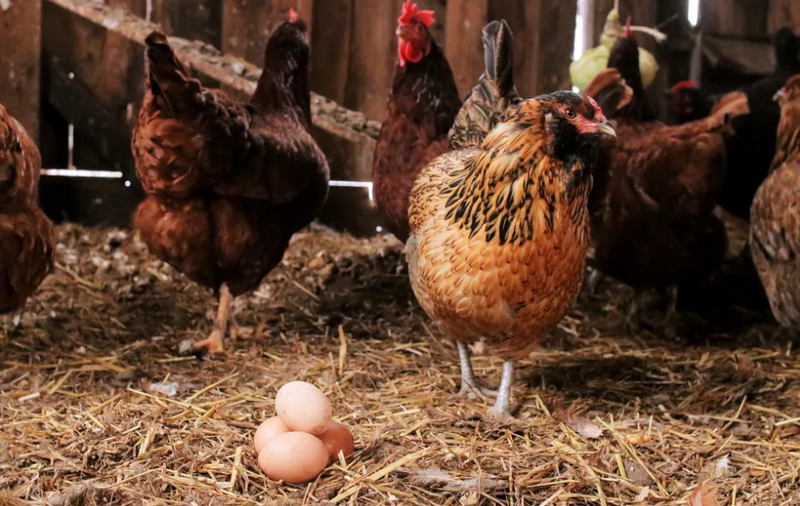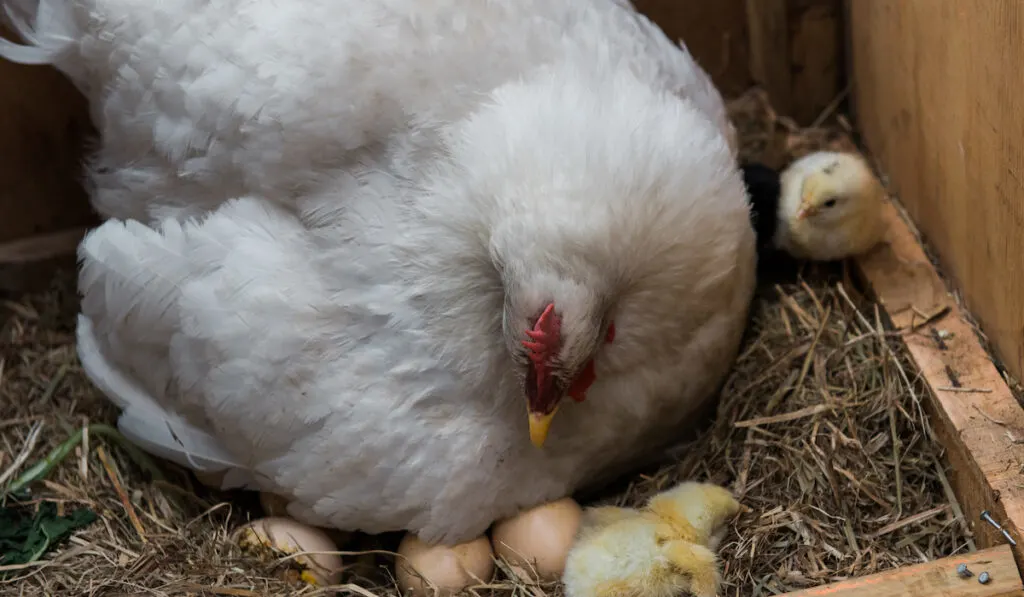Let’s talk about chickens, eggs, and the age-old question: do hens need a rooster to lay eggs? If you’re here, chances are you’ve got a backyard flock, you’re thinking of starting one, or you’re just plain curious about how chickens and eggs work. Well, buckle up because we’re diving deep into the science, myths, and practical tips surrounding egg production without a rooster. Spoiler alert: hens can totally lay eggs without their male counterparts, but there’s a lot more to the story!
Now, before we get into the nitty-gritty, let’s address why this topic matters. Whether you’re a small-scale farmer, an urban homesteader, or someone who just wants to understand the basics of chicken biology, knowing how hens produce eggs is crucial. This guide will break it down for you, covering everything from the biological process to the practical implications of keeping hens without a rooster.
So, are you ready to crack this egg mystery wide open? Let’s dive in and uncover the truth behind hen egg production, one feathered fact at a time.
Understanding Chicken Biology: The Role of Hens and Roosters
Before we jump into whether hens can lay eggs without a rooster, let’s take a step back and understand the basic biology of chickens. Hens, the female chickens, are the egg-laying powerhouses of the flock. Roosters, on the other hand, are the male chickens whose primary role is reproduction. But here’s the thing: hens don’t actually need roosters to lay eggs. In fact, most hens will lay eggs regularly regardless of whether a rooster is present.
So, what’s the difference? Without a rooster, the eggs laid by hens are unfertilized, meaning they won’t hatch into chicks. But if you’re looking for eggs for eating or selling, this is totally fine. In fact, most commercial egg producers don’t even keep roosters because they’re not necessary for egg production.
What Happens Inside a Hen’s Body?
Let’s break it down. A hen’s reproductive system is designed to produce eggs regularly, usually about once every 24-26 hours. This process is driven by hormones, specifically estrogen, which regulates the development of the egg inside the hen’s body. Here’s how it works:
- The yolk forms in the hen’s ovary.
- It travels through the oviduct, where the egg white (albumen) and shell are added.
- Finally, the fully formed egg is laid through the cloaca.
Now, if a rooster is present and mates with the hen, the sperm can fertilize the egg as it forms in the oviduct. This results in a fertilized egg that has the potential to develop into a chick. But without a rooster, the egg remains unfertilized and is simply laid as a source of nutrition.
Why Do Hens Lay Eggs Without a Rooster?
This is where things get interesting. Hens lay eggs because it’s a natural biological process. Unlike mammals, which only produce offspring through pregnancy, chickens lay eggs regardless of whether they’ve mated. This is because egg-laying is a reproductive function that’s tied to the hen’s hormonal cycle, not necessarily to mating.
In the wild, hens would lay eggs during the breeding season, and if a rooster were present, some of those eggs might be fertilized. But in domestic settings, hens are often kept in environments where they have access to plenty of food, water, and light, which can stimulate egg production year-round.
Factors That Influence Egg Production
While the presence of a rooster isn’t necessary for egg-laying, there are other factors that can influence how many eggs a hen produces. These include:
- Age: Younger hens (pullets) tend to lay more eggs than older hens.
- Diet: A well-balanced diet rich in protein and calcium is essential for optimal egg production.
- Light: Hens need about 14-16 hours of light per day to lay eggs consistently. This is why many backyard chicken keepers use artificial lighting during the winter months.
- Stress: Stress, whether from predators, overcrowding, or poor living conditions, can reduce egg production.
By understanding these factors, you can create the perfect environment for your hens to thrive and lay eggs without needing a rooster.
The Benefits of Keeping Hens Without a Rooster
If you’re considering starting a backyard flock, you might be wondering whether you need a rooster. The truth is, most people who keep chickens for eggs don’t bother with roosters, and here’s why:
- No Noise: Roosters are known for their loud crowing, which can be a nuisance to neighbors. Keeping hens only eliminates this problem.
- No Aggression: Roosters can sometimes become aggressive, especially if they feel threatened or territorial. Hens, on the other hand, are generally much more docile.
- No Fertilized Eggs: If you’re not interested in hatching chicks, keeping hens without a rooster ensures that all the eggs you collect are unfertilized and safe to eat.
Of course, there are some situations where having a rooster might be beneficial, such as if you want to expand your flock or need protection for your hens. But for most backyard chicken keepers, hens alone are more than enough.
What About Egg Quality?
Some people wonder whether the quality of eggs is affected by the presence or absence of a rooster. The short answer is no. Unfertilized eggs are just as nutritious and delicious as fertilized ones. In fact, many people prefer unfertilized eggs because they don’t have the potential to develop into chicks.
So, whether you’re baking a cake, making an omelet, or just enjoying a hard-boiled egg, you can rest assured that your hens are producing high-quality eggs without needing a rooster.
Common Myths About Hen Egg Production
There are plenty of myths floating around about chickens and eggs, and it’s time to set the record straight. Here are a few common misconceptions:
- Myth #1: Hens Need a Rooster to Lay Eggs. As we’ve already discussed, this isn’t true. Hens will lay eggs whether or not a rooster is present.
- Myth #2: Unfertilized Eggs Are Less Nutritious. This is false. Unfertilized and fertilized eggs have the same nutritional value.
- Myth #3: Hens Stop Laying Eggs After a Certain Age. While it’s true that egg production tends to decline as hens get older, many hens continue to lay eggs well into their senior years.
By debunking these myths, we can help people make informed decisions about keeping chickens and managing their flocks.
Why Do These Myths Persist?
Many of these myths have been passed down through generations, often based on incomplete or outdated information. In some cases, they stem from misunderstandings about chicken biology or confusion between wild and domesticated birds. But with modern science and research, we now have a much clearer understanding of how hens produce eggs.
Practical Tips for Maximizing Egg Production
If you’re keeping hens for eggs, there are a few things you can do to ensure they’re laying consistently and producing high-quality eggs. Here are some practical tips:
- Provide a Balanced Diet: Make sure your hens have access to a high-quality feed that’s rich in protein and calcium. You can also supplement their diet with fresh fruits and vegetables.
- Ensure Adequate Lighting: Hens need about 14-16 hours of light per day to lay eggs consistently. Consider using artificial lighting during the winter months to maintain production.
- Keep the Coop Clean: A clean coop helps prevent disease and stress, both of which can reduce egg production.
- Monitor Health: Regularly check your hens for signs of illness or injury. Early intervention can help prevent problems that could affect egg-laying.
By following these tips, you can create an environment where your hens thrive and produce plenty of delicious eggs.
What About Egg Collection?
Collecting eggs is an important part of chicken keeping, and it’s something you’ll want to do regularly. Here are a few tips:
- Check the nesting boxes at least once a day to collect fresh eggs.
- Store eggs in a cool, dry place until you’re ready to use them.
- Wash eggs only when necessary, as washing can remove the natural protective coating (bloom) that helps keep bacteria out.
By taking good care of your hens and their eggs, you’ll be rewarded with a steady supply of fresh, nutritious eggs.
Conclusion: Do Hens Produce Eggs Without a Rooster?
So, there you have it: hens absolutely can produce eggs without a rooster. Whether you’re keeping chickens for eggs, meat, or companionship, understanding the biology and practical aspects of egg production can help you make the most of your flock. From providing a balanced diet to ensuring adequate lighting, there are plenty of things you can do to support your hens and maximize their egg-laying potential.
Now, here’s where you come in. If you’ve learned something new from this guide, why not share it with your friends and fellow chicken enthusiasts? And if you have any questions or comments, feel free to drop them below. After all, the more we know about chickens and eggs, the better we can care for these amazing birds.
Table of Contents
- Understanding Chicken Biology: The Role of Hens and Roosters
- Why Do Hens Lay Eggs Without a Rooster?
- The Benefits of Keeping Hens Without a Rooster
- Common Myths About Hen Egg Production
- Practical Tips for Maximizing Egg Production
- Conclusion: Do Hens Produce Eggs Without a Rooster?
- What Happens Inside a Hen’s Body?
- What About Egg Quality?
- Why Do These Myths Persist?
- What About Egg Collection?
Thanks for reading, and happy chicken keeping!


